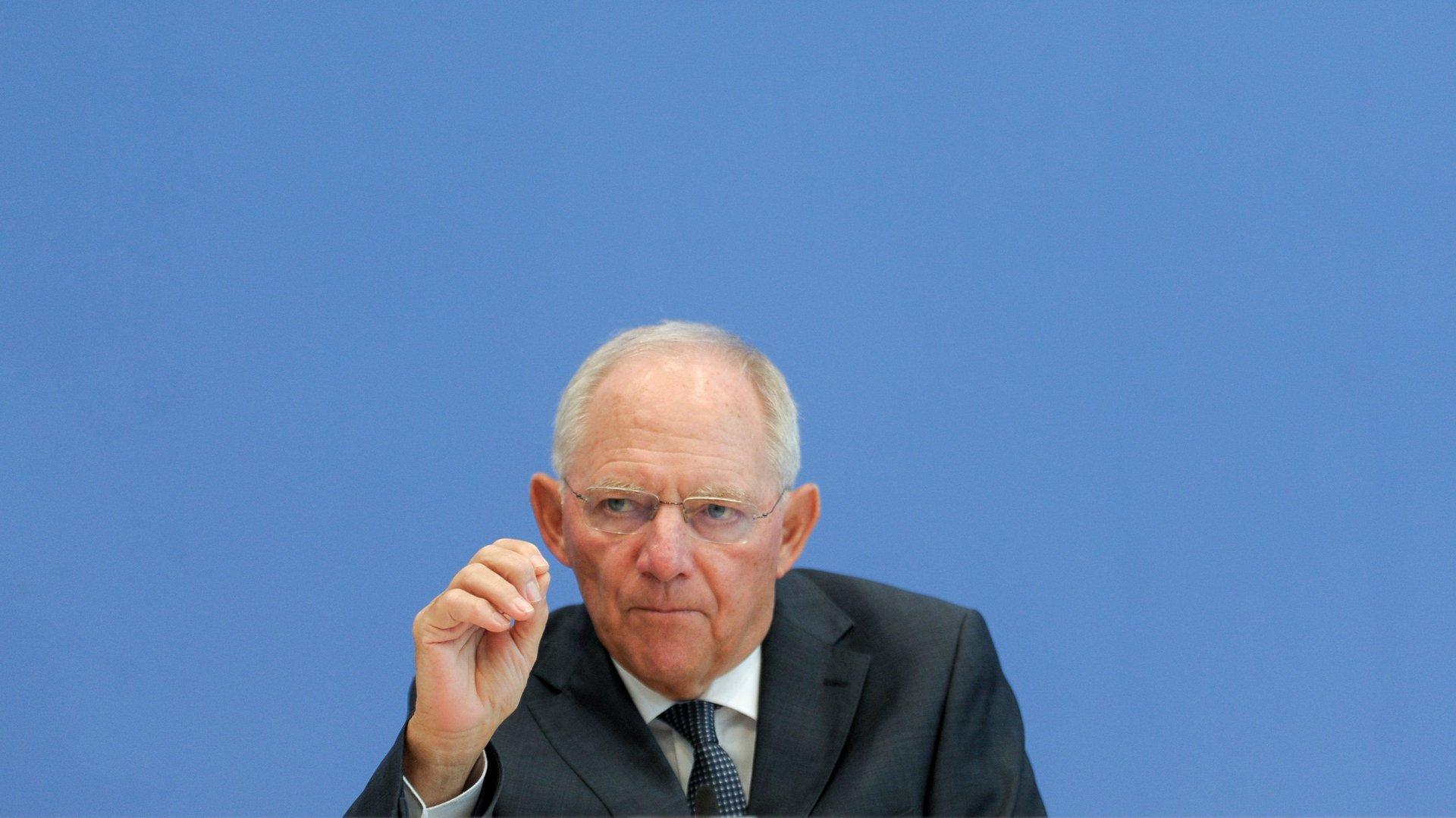Germany’s uber-powerful finance minister, a staunch defender of austerity, is leaving his post
Germany’s messy federal election has resulted in its first major reshuffle. Wolfgang Schäuble has been Germany’s finance minister since 2009, and under him it became one of the most powerful political positions in Europe. Today, his party, chancellor Angela Merkel’s Christian Democrats (CDU) announced that he will be nominated to become president of the German parliament (link in German).


Germany’s messy federal election has resulted in its first major reshuffle. Wolfgang Schäuble has been Germany’s finance minister since 2009, and under him it became one of the most powerful political positions in Europe. Today, his party, chancellor Angela Merkel’s Christian Democrats (CDU) announced that he will be nominated to become president of the German parliament (link in German).
As expected, Sunday’s federal election resulted in a fourth term as chancellor for Merkel. Beyond that, it all gets a bit convoluted. Support for Merkel’s CDU declined from the previous vote, and after not winning enough votes to form a majority government, it must now form a coalition to govern. Its previous partner, the center-left Social Democrats, have ruled out going into a coalition again. That leaves the mostly likely arrangement a three-way arrangement with the Free Democratic Party (FDP) and Greens. These smaller parties will push for prominent ministerial positions as a price for their co-operation, with Schäuble’s former finance post an attractive prize.
Schäuble’s move is technically a promotion, allowing him to control debates in parliament, which will for the first time include members of the the far-right Alternative for Germany (AfD). In reality, it will take him off the international stage, where he’d become well-known for insisting on austerity both at home and abroad, especially for the euro zone’s stretched southern members that succumbed to international bailouts during the worst of the region’s debt crisis.
Schäuble, 75, is very popular in Germany for his hardline stance against debt and deficits but has attracted ire elsewhere. Particularly memorable were his fights in 2015 with Greece’s then finance minister, Yanis Varoufakis, who wanted debt relief for his beleaguered country. Schäuble was against it—and remains so—and for a time seemed ready to let Greece crash out of the euro before making any compromises.
Who will replace him as finance chief will be an early indicator of Merkel’s plans for her next term. The chancellor could keep the position within her own party, which could see a somewhat more EU integration-friendly, less austerity-loving replacement. If it goes to one of her coalition partners instead, the shift in policy could be more pronounced: the FDP and Greens have drastically different views on the economy and future European integration.
According to Carsten Nickel at Teneo Intelligence, it’s more likely that the position will go to someone from the FDP. This would represent a hurdle for French president Emmanuel Macron’s vision of more European integration. The FDP has said it wants to change EU treaties to make it easier for member states to leave the euro without losing their EU membership. And before Greece’s government breathes a sigh of relief that Schäuble is out, the FDP leader told Politico earlier this year that Greece should be granted debt relief, on the condition that it is expelled from the euro temporarily until its economy recovers.
For many outside of Germany, Schäuble’s departure from the finance ministry will be seen as the end of an era. His visibility at home will be as high as ever, installed in a powerful position at a crucial juncture for parliament in his 45th year as a member of the institution.